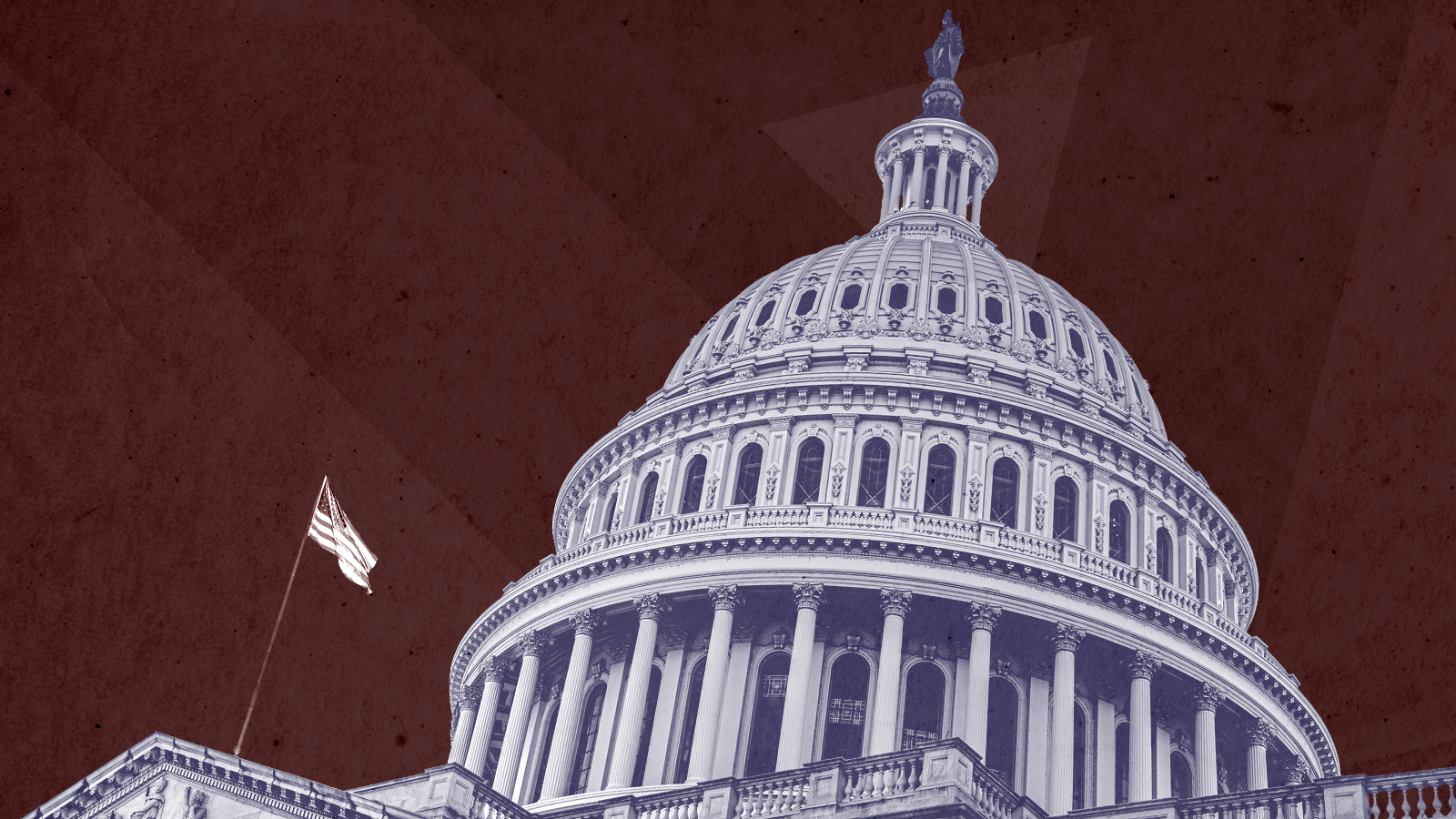A 55-vote filibuster won't unparalyze the Senate


A free daily email with the biggest news stories of the day – and the best features from TheWeek.com
You are now subscribed
Your newsletter sign-up was successful
If Democrats can't destroy the filibuster, can they at least lower the threshold for passing legislation to 55 votes? The idea has been floated by two prominent political columnists in recent days — Greg Sargent, a progressive writer for The Washington Post, and Ross Douthat, a conservative at The New York Times.
Sargent quoted Ira Shapiro, former counsel to the late Sen. Robert Byrd (D-W.Va.), who once supported lowering the filibuster from 67 votes to its current 60-vote threshold that has become standard for most Senate bills. Sen. Joe Manchin (D-W.Va.) could conceivably follow in his predecessor's steps by leading the charge to lower the standard by another five votes.
"His nightmare scenario was a paralyzed Senate," Shapiro said of Byrd. "He would have explored any possibility that allowed the Senate to get the work of the nation done. Lowering the threshold is consistent with what he's supported in the past."
The Week
Escape your echo chamber. Get the facts behind the news, plus analysis from multiple perspectives.

Sign up for The Week's Free Newsletters
From our morning news briefing to a weekly Good News Newsletter, get the best of The Week delivered directly to your inbox.
From our morning news briefing to a weekly Good News Newsletter, get the best of The Week delivered directly to your inbox.
Douthat agreed. "It adapts the filibuster in a reasonable way to our age of heightened polarization, maintaining protections for the minority, while making some deals that used to be possible available again," he wrote Sunday.
It sounds like a good idea, certainly better than leaving the current 60-vote rule in place. The problem is that it probably wouldn't work.
For one thing, Manchin has stated repeatedly that he won't vote to eliminate or weaken the filibuster — and did so again just a week ago in a newspaper op-ed. There's no two ways about it: Lowering the standard to 55 votes would weaken the filibuster. That's the whole point. It's difficult to see how Manchin could go along without breaking what appears to be an ironclad promise.
Even if he did, the Senate is still split 50-50 between Democrats and Republicans. And with few exceptions, Republicans are dedicated to denying Democrats anything that might appear to be a bipartisan victory. Perhaps one of the parties can muster a 55-vote vote majority during the next election cycle or two, but for now even a weakened filibuster would be too big an obstacle for Democrats to surmount in most cases. For now, then, the goal of un-paralyzing the Senate is probably just fantasy.
A free daily email with the biggest news stories of the day – and the best features from TheWeek.com
Joel Mathis is a writer with 30 years of newspaper and online journalism experience. His work also regularly appears in National Geographic and The Kansas City Star. His awards include best online commentary at the Online News Association and (twice) at the City and Regional Magazine Association.
-
 How the FCC’s ‘equal time’ rule works
How the FCC’s ‘equal time’ rule worksIn the Spotlight The law is at the heart of the Colbert-CBS conflict
-
 What is the endgame in the DHS shutdown?
What is the endgame in the DHS shutdown?Today’s Big Question Democrats want to rein in ICE’s immigration crackdown
-
 ‘Poor time management isn’t just an inconvenience’
‘Poor time management isn’t just an inconvenience’Instant Opinion Opinion, comment and editorials of the day
-
 Grand jury rejects charging 6 Democrats for ‘orders’ video
Grand jury rejects charging 6 Democrats for ‘orders’ videoSpeed Read The jury refused to indict Democratic lawmakers for a video in which they urged military members to resist illegal orders
-
 Democrats push for ICE accountability
Democrats push for ICE accountabilityFeature U.S. citizens shot and violently detained by immigration agents testify at Capitol Hill hearing
-
 Big-time money squabbles: the conflict over California’s proposed billionaire tax
Big-time money squabbles: the conflict over California’s proposed billionaire taxTalking Points Californians worth more than $1.1 billion would pay a one-time 5% tax
-
 Will Peter Mandelson and Andrew testify to US Congress?
Will Peter Mandelson and Andrew testify to US Congress?Today's Big Question Could political pressure overcome legal obstacles and force either man to give evidence over their relationship with Jeffrey Epstein?
-
 Did Alex Pretti’s killing open a GOP rift on guns?
Did Alex Pretti’s killing open a GOP rift on guns?Talking Points Second Amendment groups push back on the White House narrative
-
 Rep. Ilhan Omar attacked with unknown liquid
Rep. Ilhan Omar attacked with unknown liquidSpeed Read This ‘small agitator isn’t going to intimidate me from doing my work’
-
 Washington grapples with ICE’s growing footprint — and future
Washington grapples with ICE’s growing footprint — and futureTALKING POINTS The deadly provocations of federal officers in Minnesota have put ICE back in the national spotlight
-
 Can anyone stop Donald Trump?
Can anyone stop Donald Trump?Today's Big Question US president ‘no longer cares what anybody thinks’ so how to counter his global strongman stance?
